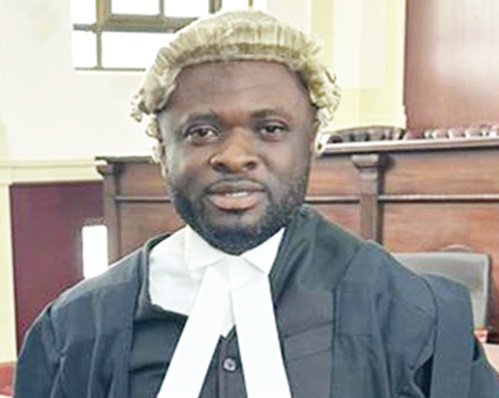The Supreme Court has declared as unconstitutional, certain provisions in the new Companies Act which prohibit a person charged with a criminal offence from becoming a Director of a company.
In a unanimous decision yesterday, a seven-member panel of the apex court held that, the first parts of Sections 13 (2) (h) (i), (ii) and 172 of the Companies Act, 2019 (Act 992), violated Article 19 (2) (c) of the 1992 Constitution.
Article 19 (2) (c) of the Constitution guarantees the right of an individual, charged with a criminal offence to be presumed innocent until proven guilty or pleads guilty.
In view of the fact that the said provisions in Act 992 violated Article 19(2)(c) of the Constitution, the Supreme Court, based on its power as the custodian and interpreter of the Constitution, declared them as null, void and of no legal effect, and struck them out.
The seven-member panel of the court was presided over by Justice Gabriel Pwamang, with Justices Mariama Owusu, Lovelace, Avril Lovelace Johnson, Henreitta Mensa-Bonsu, Issifu Omoro Tanko Amadu, Barbara Ackah Yensu and Samuel Kwame Adibu-Asiedu as members.
The case, which culminated in the landmark decision by the apex court, was filed by a private legal practitioner, Derick Adu-Gyamfi.
This is the second time the Supreme Court has declared a provision in an Act of Parliament as violating Article 19 (2) (c) of the 1992 Constitution.
In 2016, the court, in a 5-2 majority decision declared as unconstitutional the law which made certain offences non-bailable on the basis that it violated the same Article 19 (2) (c) of the Constitution.
Companies Act
The Companies Act, 2019 (Act 992) is a massive overhaul of the Companies Act, 1963 (Act 179), with the sole aim of promoting the ease of doing business, as well as strengthening the corporate governance of companies.
One of the highlights of Act 992 is an attempt to prevent people with shady backgrounds from forming or hiding behind certain people to form companies or for such people to have control over companies.
Section 13 of Act 992 deals with the information that ought to be included in an application for incorporation of a company to the Registrar of Companies, while Section 13 (2) (h) stipulates that the application must include a statutory declaration by a proposed director of a proposed company.
Per Section 13 (2) (h) (i) and (ii) of Act 992, the statutory declaration must indicate that the proposed director has not within the last five years, before the application, been “charged with or convicted of a criminal offence involving fraud or dishonesty; and “charged with or convicted of a criminal offence relating to the promotion, incorporation or management of a company”.
With regard to Section 172 of Act 992, a company cannot appoint someone to fill the vacancy of a Director unless that person has made the same statutory declaration as pertains in Section 13 (2) (h) of Act 992.
When filling forms to register a company limited by shares or guarantee or changing a director, Form 26 (c) requests a director to answer, “That I have not been charged with or convicted of a criminal offence involving fraud or dishonesty within the last 5 years”.
“That I have not been charged with or convicted of a criminal offence relating to the promotion, incorporation or management of a company in the last 5 years that has become insolvent,” among other requests, to establish criminality.
Case of the plaintiff
Aggrieved by Sections 13 (2) (h) and 172, Mr Adu-Gyamfi, sued the Attorney-General at the Supreme Court for a declaration that the said provisions were unconstitutional.
Counsel further argued that Sections 173 and 177 of Act 992, which prohibited a person convicted of a criminal offence, found culpable of a criminal offence or under investigations from becoming a director of a company, except with permission of a court were also unconstitutional.
It was the case of the plaintiff that Sections 13 (2) (h), 172, 173 and 177 by prohibiting a person charged with a criminal offence or under investigations from becoming a Director of a company was a violation of a cardinal human right of the presumption of innocence until proven guilty, which was recognised worldwide and protected by Article 19 (2) (c) of the Constitution.
The plaintiff further averred that the said provisions in Act 992 also sinned against the right to natural justice or giving hearing, which was also protected by Article 19 (1) of the Constitution.
The plaintiff, therefore, asked the apex court to declare the first parts of Sections 13 (2) (h) (i), (ii) and 172 which dealt with charges as unconstitutional and, therefore, null and void.
He further wanted the court to declare the portions of Section 173 and 177, which dealt with a person under investigations to seek permission from a court before being appointed as a Director of a company as unconstitutional.
The Supreme Court, in its considered view, granted the reliefs relating to Sections 13 (2) (h) and 172 but dismissed the ones relating to Sections 173 and 177.
Writer’s email: emma.hawkson@graphic.com.gh


